Whether you’re someone hitting the teen years or an adult learning piano later in life, there’s a perfect song for your level. In this guide, we break it down into Beginner, Intermediate, and Advanced sections.
We’ll suggest specific songs, answer common questions adult learners have, and offer practice advice. As always, real musical progression is a balance: even college students in Beverly Hills or working adults in Woodland Hills can jump between classical drills and pop fun to keep practice engaging.
Beginner Level Piano: Simple Songs To Play
Start with the famous piano songs that we also mentioned in the main article:
- “Happy Birthday”,
- “Let It Be”,
- “Imagine”,
- “Lean On Me”, or
- nursery rhymes (Twinkle Twinkle, Jingle Bell, etc.) if you’re brand-new.
These are definitely the easiest songs on piano for beginners that you’ll find.
On the classical side, try these simple piano songs:
- Bach’s Prelude in C major, or
- the easy first movement of Mozart’s “Eine kleine Nachtmusik”.
Adult beginners often enjoy the following:
- Billy Joel’s “Piano Man” (verse chords are a breeze) or
- “All of Me” by John Legend (simple four-chord loop, great for practicing smooth transitions).

FAQs:
Do I have to read music?
Not at first. You can learn a song by ear or chord chart, and focus on playing. Just know basic music theory, like an understanding of scales. Or to gather interest first, you can also jump straight into a song you love. That method helped one of our students from Encino stick with the piano after almost quitting.
How do I practice as an adult?
Short daily sessions (15–20 minutes) work well. Set small goals: maybe “Learn the intro to “Clocks” by Coldplay in two weeks,” and that will cover key coordination, rhythm, and change of hand. The key is consistency and celebrating progress. Record yourself every month, and you’ll see improvement.
I’m bored with simple songs; what’s next?
Once a song feels easy, level up to something slightly more complex. If you’re bored with nursery rhymes or single-octave melodies, try “Let It Be.” If that is too straightforward, try “Clocks” (repeating arpeggio pattern) or “River Flows in You” (simple intro with arpeggios). On the classical side, move from the Prelude in C to Bach’s Invention in C, still manageable, but it introduces counterpoint.
Technique tip:
At this stage, focus on good posture and hand position. Adults must resist tense habits. Learn to use a metronome or slow-down app to nail consistent timing.
And yes, many adult learners find they love pop/piano crossover songs. It’s okay to mix: study your favorite genre alongside a beginner classical piece to keep both technical skills and enjoyment growing.
Live near Westwood, Tarzana, or Brentwood? Come take a lesson at Angeles Academy of Music and learn your favourite songs. We have the best piano lessons for adults, teenagers, and kids that Los Angeles has to offer. Book a session now.
Intermediate Level: Building skills
By intermediate level, you likely have the basics of two-handed playing. Now expand your repertoire and musicianship.
Song suggestions:
Classical Songs:
- “Fur Elise” (complete it!),
- Debussy’s “Arabesque”, or
- “Gymnopédie No. 1”
For contemporary music, tackle:
- Adele’s “Someone Like You” or
- Billie Eilish’s “My Future”;
These use richer chords and broken patterns.
Movie music fans might enjoy:
- “Hedwig’s Theme” or
- The love theme from Beauty and the Beast.
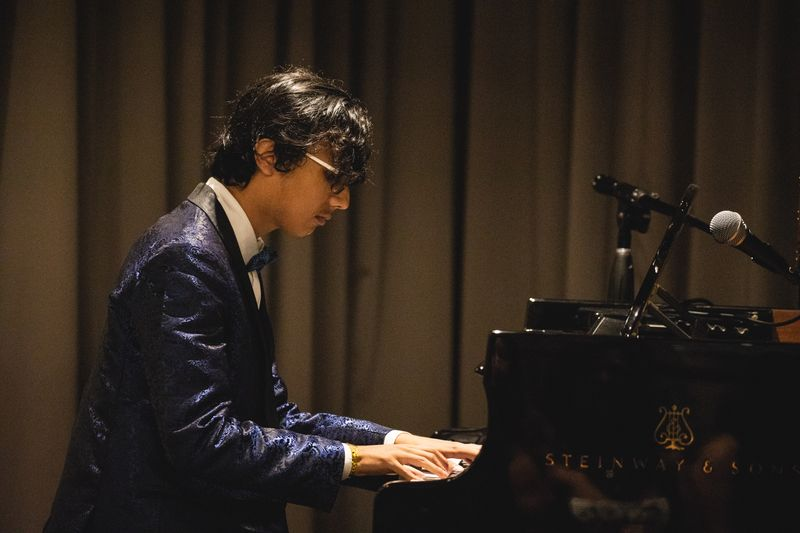
Practice advice:
Now is the time to think in sections. As one piano course advises, always “divide the song into sections” (intro, verse, chorus) and master each part before gluing them together. Use a metronome to refine rhythm.
Focus on dynamics: play the chorus louder and verses softer, adding emotion to your performance. Also, keep reviewing simpler songs so you don’t lose that confidence.
FAQ – Intermediate-level students' concerns:
How long until I see progress?
Everyone’s different. You might reach Grade 1 exam readiness in a year, or take longer if part-time. The important thing is steady practice. Notice small improvements like cleaner bass lines or steadier timing. Those mean you’re on track.
Should I focus on classical or pop?
A balanced approach works best. Classical training builds strong technique (78% of pros began with classical), while playing pop keeps you motivated (70% of students stay more engaged with pop/recreational music).
Consider doing both: perhaps one classical piece and one pop song per week.
I’m plateauing – is this normal?
Yes. At intermediate stages, gains come more slowly. Don’t switch teachers or give up too fast. Instead, first, set new small goals (like playing a duet with a friend, or learning a fun piece from start to finish). Recording your playing can help you appreciate how far you’ve come.
Advanced Level: Taking it further
If you’ve learned all the songs above and mastered medium-level pieces, you’re in advanced territory. Now you can explore music seriously:
Song suggestions:
Classical advanced pieces include:
- Chopin’s Nocturne in E-flat (Op. 9 No. 2),
- Debussy’s “Clair de Lune”, or
- Rachmaninoff’s Prelude in C# minor.
Pop/modern picks might be:
- Bohemian Rhapsody (Queen),
- River Flows in You (Yiruma) full version, or
- La La Land’s “City of Stars” in both hands.
Film scores like:
- “Now We Are Free” (Gladiator) or
- “Hallelujah” (advanced arrangement)
are also fulfilling challenges.
Exams and Progress:
If you’re considering exams (ABRSM, Trinity), ask your teacher about suitable grade pieces. The piano syllabus is “progressive and challenging…providing motivation and structure”. At Angeles Academy, we prepare students for RCM/ABRSM exams if desired. Each grade introduces new skills, so moving up gradually ensures steady growth.
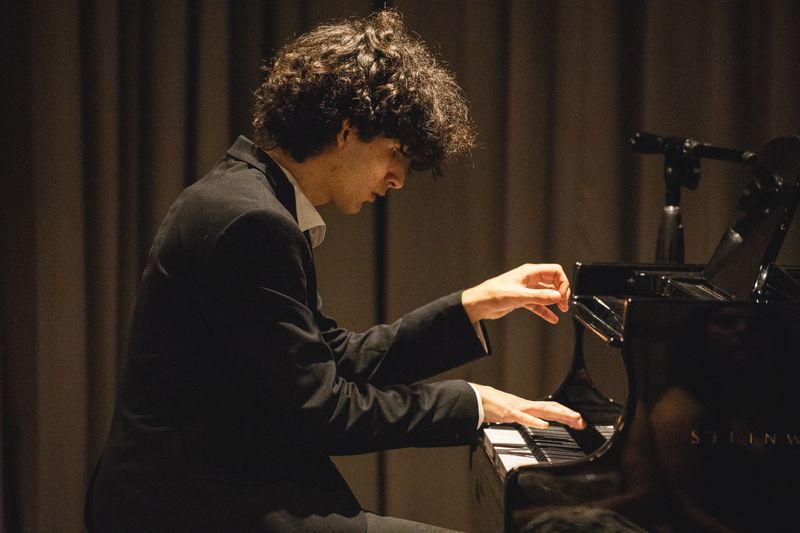
Local resources
Los Angeles has many outlets for advanced learners. Our school (Angeles Academy of Music) offers multiple opportunities for advanced students. Nearby, LA Philharmonic’s youth programs or UCLA’s advanced community classes can expose you to high-level repertoire.
Even if you study solo, consider attending a local piano recital or competition. It’s inspiring to see what skilled players do.
FAQ – Advanced learner questions:
How do I stay motivated at this stage?
Challenge yourself with new genres or composing your own piece. I’ve seen adult students regain enthusiasm by learning with others (duets or bands) or exploring improvisation and arranging.
What if I want to teach or go pro?
If that’s your dream, the path is formal study (music college, conservatory). But even without it, many advanced hobbyists find joy performing in churches or community theaters. In LA, for example, advanced students sometimes volunteer to play at charity concerts or teach beginners themselves – sharing music is a great motivator.
What are some of the hardest piano songs?
The most challenging pieces I know are: Liszt’s La Campanella, Ravel’s Gaspard de la Nuit, Chopin’s Etudes (Op. 10 & Op. 25), and Rachmaninoff’s Piano Concerto No. 3. These works demand extreme technique, speed, endurance, and musical control, far beyond the advanced beginner or intermediate level.
Final Thoughts
No matter your level, remember that learning piano is a journey. The songs above should keep your practice sessions practical and fun.
Playing songs trains your musical brain and keeps you motivated far more than drills. Set clear goals (maybe an ABRSM exam, a school performance, or simply “play a song at home every week”), and celebrate each achievement.
At Angeles Academy of Music, we see students of all ages progress through these stages. You’re never too old or too “out of shape” to start, and you can always find the next piece that moves you.
So pick a song from this list, sit at a piano (whether in Brentwood, Tarzana, or your own living room), and just play. You’ll be amazed at how even beginners can make beautiful music with the right tune and a bit of patience.
If you’re in the neighbourhoods of Brentwood, Westwood Village, Tarzana, Encino, or Woodland Hills, we’re just a short drive away and offer great quality private piano lessons near you, in Los Angeles.
Join us at Angeles Academy of Music, whether you’re aiming for ABRSM exams, want to play movie themes, or simply want to enjoy music again. We’ll guide you at every level.
Contributed by: Nathan P. BM, Indiana University
.svg)
.svg)
.svg)
.svg)
.svg)
.svg)
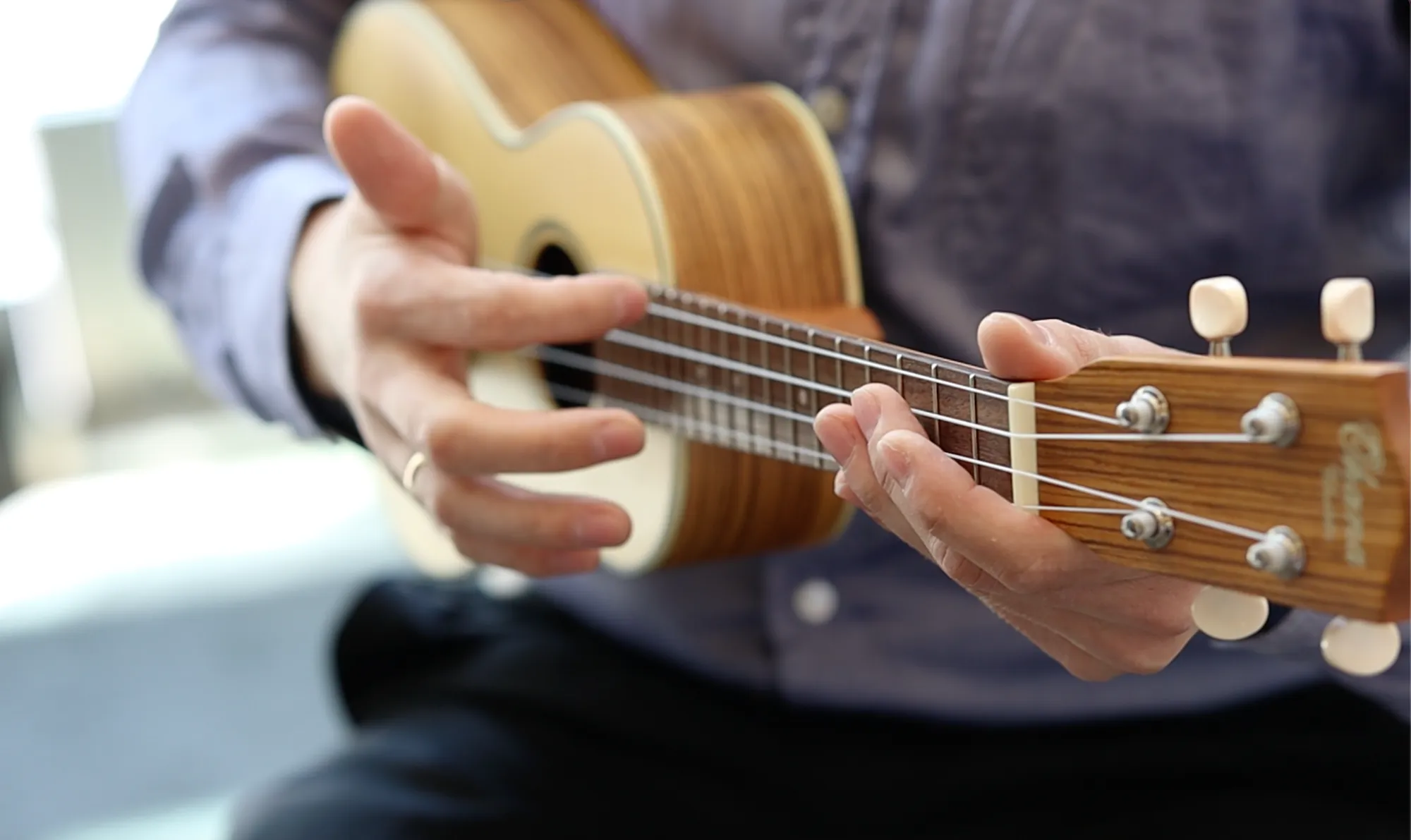
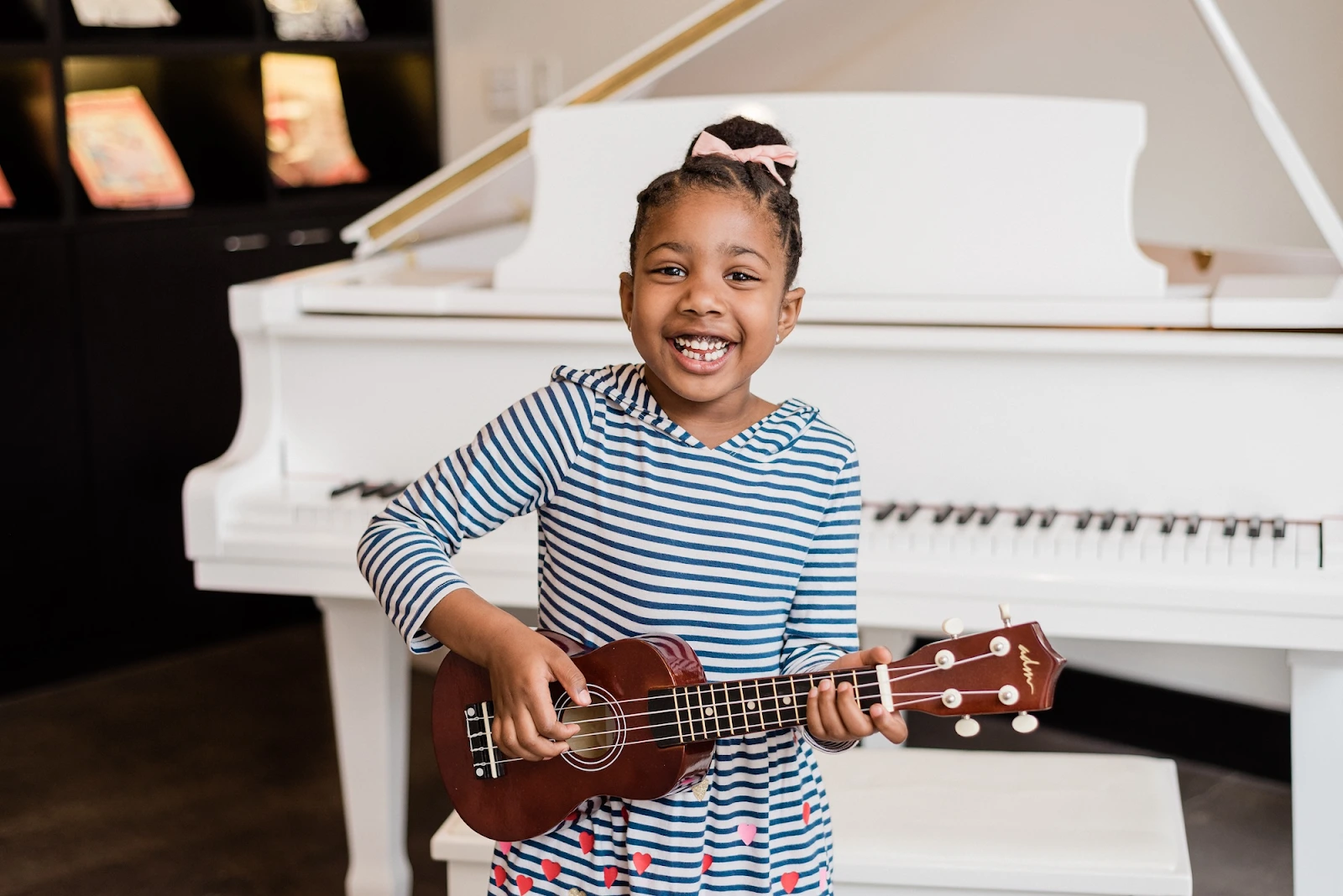
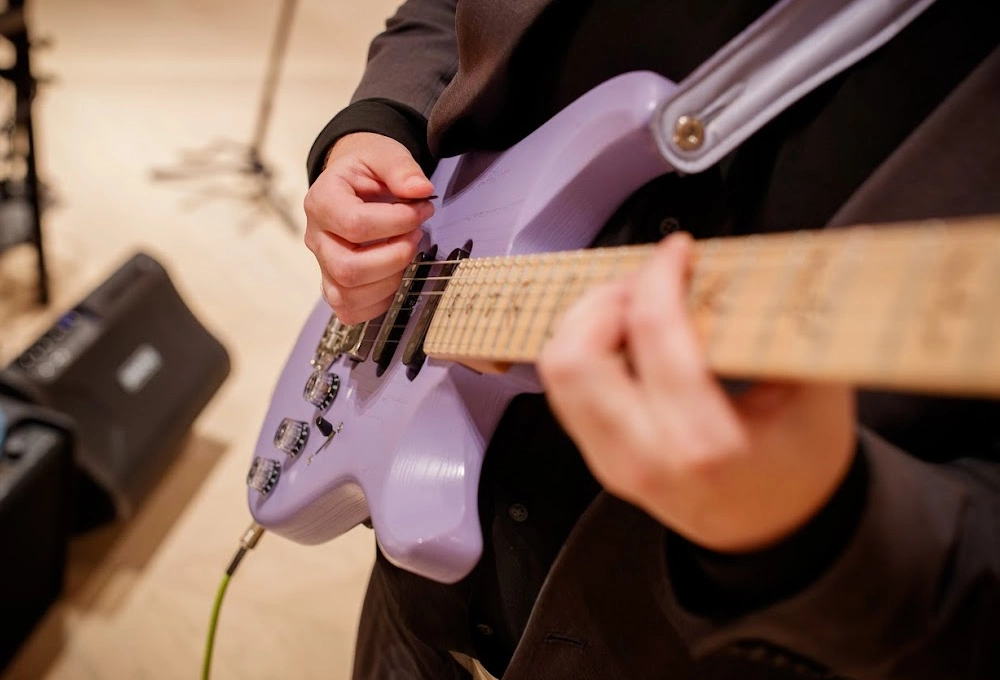


.svg)